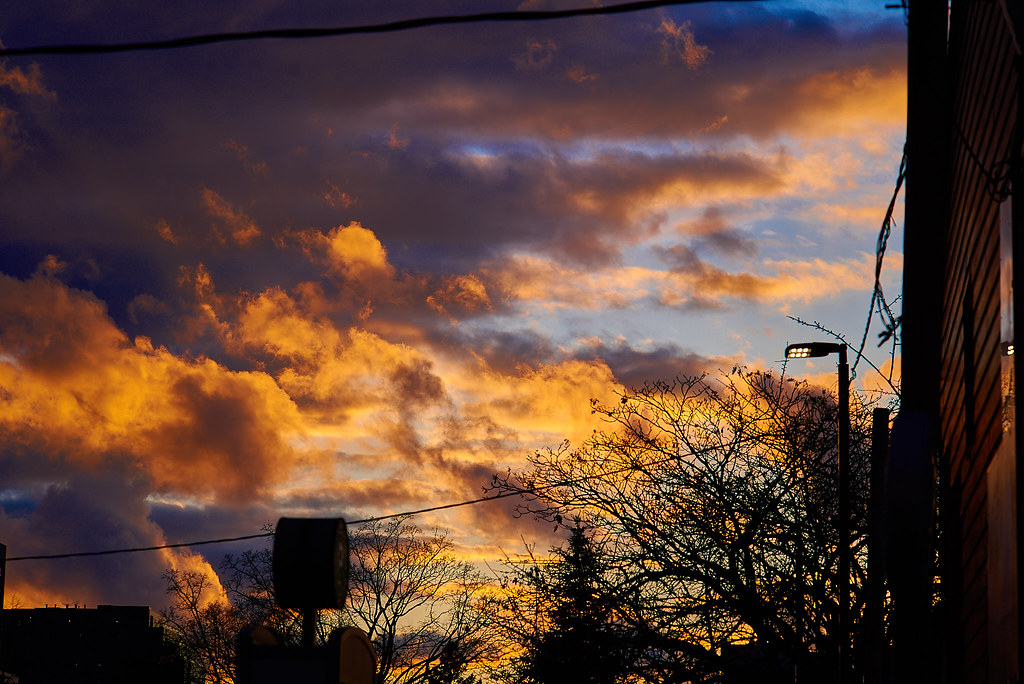
D800, 105/2.5 AI-S
In evaluating what you should look at for gear, it pays to understand how you shoot and what gear you need to support that.
For me, I have pretty much 4 modes of shooting.
1. Daily carry. I try to always carry a camera to and from work, often shooting at lunch as well. This needs to be a reasonably compact & light body with 1-2 primes (I prefer not to work with zooms for this use).
2. Light landscape kit. This is my minimalist kit for landscape, and it's basically a UWA and a telephoto zoom. Body should be lighter as well, but bulks up a bit over #1 via adding an L-bracket.
3. Heavy landscape kit. This is what I use when working close to the car, I'll carry more lens options (often carrying everything in the car and just grabbing 1-2 lenses when working)
4. Fun kit. I'll take a body with 2-3 primes around the city or elsewhere to shoot. Weight doesn't matter, experience does.
Right now I don't have an answer for #1 but the D800 seems to be getting used the most although it's way too heavy to be ideal, am using the A7II for #2, the A7II+D800 for #3 and the D800 or FE for #4.
For #1, the best setup I've found was my Fuji kit, specifically the X-T1.Most of the crop mirrorless systems will do OK, except Nikon (no small native primes for Z/DX) DSLR's just don't work, and FF Mirrorless seems to be too close to smaller FF DSLR's in size/weight.
For #2, I've never really had a kit that's ideal. Closest was probably the D300+10-20+70-300VR, the Oly bodies with the 9-18 and 40-150 was a close second, but not quite there (the 40-150 was too slow for the sensor & the IQ was marginal if I needed to push).
#3 is easy, stick kits #1 & #2 in a bag and add anything else lying around. Stick bag in the passenger seat footwell and I'm set.
#4 has been all over the place, but I generally prefer a 35mm SLR (film or digital) with 2-3 classic manual focus primes. The D800 is close to perfect for this.
This keeps bringing me back to a few conclusions.
1. Sony doesn't offer the lenses I want at a price I'm willing to pay, and the 3rd party options just don't quite do it. Plus I don't like the ergonomics of their APS-C bodies and the FF bodies + lenses are bigger than I'd like.
2. m43 almost works. I like the lens lineup, it mostly works for me, the pricing is good. But the IQ just doesn't work enough of the time when I can't do HighRes or multishot HDR shots.
4. The Canon and Nikon lens lines in crop mirrorless aren't there and adapting DSLR lenses just doesn't quite do it. I'm actually more amenable to Canon here, because their cameras are cheaper, their adapters are cheaper and they have the 22/2.
5. Crop DSLR's almost work, but the small ones have crap viewfinders and the big ones are heavy. They're also physically less ideal for use #1, due to the mirrorbox size. But they'd be fine for use #2 & 3 with the right pair of lenses, and the lens options are MUCH wider.
That leads me back to Fuji. They're ideal for #1, an X-T or X-E body with the Fujicrons is my basic standard that nobody else has yet matched.
For #2 Fuji isn't ideal due to the relatively high cost of the 10-24 compared to something like Sigma's 10-20's in DSLR mounts or the Oly 9-18. But it's at worst comparable in cost to Tamron's 17-28 in FE mount and the Fuji is wider, longer and IS. Sony's 16-35's are significantly more money and either worse or massive in comparison. The X-T2, X-T3 and X-T200 give me screen articulation I want, the wifi implementation is excellent and they have the best USB setup on the market (power & charge), allowing you to charge on the fly from the car or while shooting from a USB power bank. Fuji also offers a 14mm prime option (21mm-e) and Zeiss offers a 12mm (18mm-e), which is more wide AF primes than any other crop system. The Zeiss is also available in E mount, but there's no 14, the next widest prime in the other systems are all 24mm-e (16mm in EOS M or E, 12mm in m43).
I could be pretty happy with an X-T2, 10-24 and 55-200 for #2, or any of the newer 24 or 26MP bodies with a 23+50 pair of Fujicrons for use #1.
What does this mean? Not sure, but I'm already planning on passing the Sony A7II to my SO as a replacement for her now over 10 year old G1, so I need a replacement anyways and the Fuji just makes a lot of sense. The other option that seems to make surprising sense would be an EOS RP with adapted EF lenses, that works fine for use #2 and has potential for use #1. But I just come back to the Fujis.






